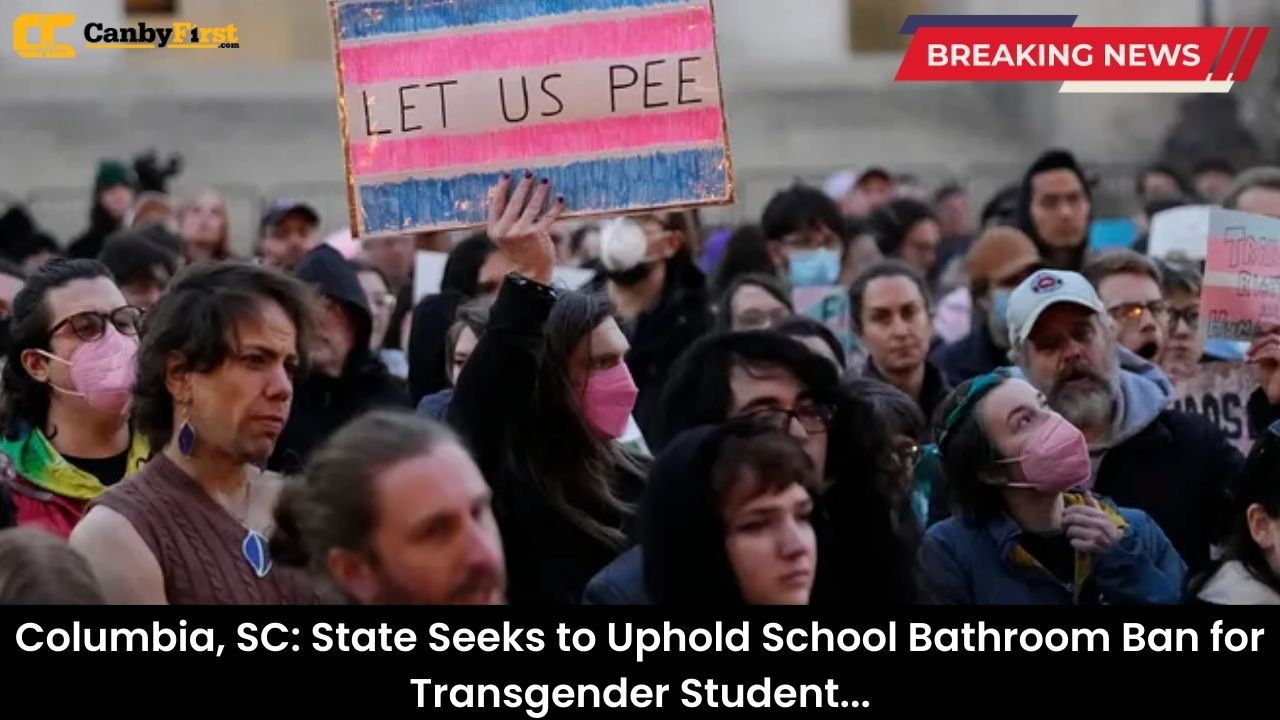In a high-stakes legal battle unfolding at the nation’s highest court, the state of South Carolina has urged the U.S. Supreme Court to maintain a lower-court injunction that bars a transgender student from using the bathroom that aligns with her gender identity. State officials argue the policy is necessary to protect privacy rights and uphold local school board authority, while civil rights advocates decry the ban as discriminatory and harmful to transgender youth.
State’s Appeal to Supreme Court
South Carolina’s Solicitor General filed emergency papers with the Supreme Court late Thursday, asking justices to extend the stay issued by a federal district court last spring. That stay reinstated a 2023 state law barring public school students from using restrooms, locker rooms, and showers inconsistent with the sex listed on their birth certificate. State attorneys contend the law reflects parental consent and community values, and that the lower court’s decision to block it “upends the state’s sovereign authority to set educational policy.”
The Student at the Heart of the Case
The lawsuit centers on a 15-year-old student from Richland County who identifies as female. After she began living as a girl and updating her school records, administrators directed her to use separate, single-stall restrooms. She filed suit last December under Title IX and the Equal Protection Clause, arguing the policy stigmatizes transgender students and violates federal civil rights laws. A federal district judge agreed in March, issuing an injunction that allowed her continued access to the girls’ facilities.
Also Read
Arguments from Both Sides
For the State:
-
South Carolina asserts that schools must balance student privacy and safety. Officials warn that permitting students to choose restrooms based on gender identity could impinge on the privacy rights of other children.
-
The state frames the issue as one of local control, arguing that educational decisions belong to elected school boards, not the federal judiciary.
-
It warns of “unintended consequences,” suggesting the injunction could open the door to challenges against single-sex athletic teams and dress codes.
For the Student:
-
The student’s lawyers highlight research showing that inclusive bathroom policies do not compromise safety or privacy for any students.
-
They emphasize the psychological harm experienced by transgender youth forced to use facilities misaligned with their identity, citing increased anxiety, depression, and risk of bullying.
-
Civil rights groups argue that Title IX’s ban on sex discrimination must extend to gender identity, pointing to federal guidance interpreting the statute accordingly.
Broader Implications
A Supreme Court ruling on this case could set a national precedent for how Title IX applies to transgender rights. Lower courts across the country are currently split: some uphold inclusive policies, while others endorse restrictive state laws. A decision in South Carolina’s favor would embolden similar bans in other states; a ruling for the student could reaffirm protections for transgender individuals in schools nationwide.
Voices from the Community
In Columbia, opinions remain sharply divided. At a recent school board meeting, dozens of parents and students packed the auditorium.
“I just want my daughter to feel safe and seen,” said one mother of a transgender student in Richland County. “This law tells her she doesn’t belong.”
Conversely, another parent expressed support for the state’s stance: “I respect everyone’s personal journey, but schools should have boundaries that protect all children’s comfort.”
The Road Ahead
South Carolina’s emergency request will likely be considered alongside other pending Supreme Court petitions on transgender rights, including cases involving military service and public accommodations. The justices may schedule oral arguments for the fall term, but they could also act swiftly if they see urgent need to clarify the law before the next school year.
Meanwhile, the Richland County School District awaits guidance. Administrators have signaled they will comply with the district court’s injunction until the Supreme Court rules, but they have prepared communications plans in case they must reinstate the ban.
Conclusion
As the Supreme Court weighs this urgent appeal, the nation watches closely. The pending decision will not only determine which restroom a single student may use but could also reshape the legal landscape for transgender rights in educational settings for years to come.












